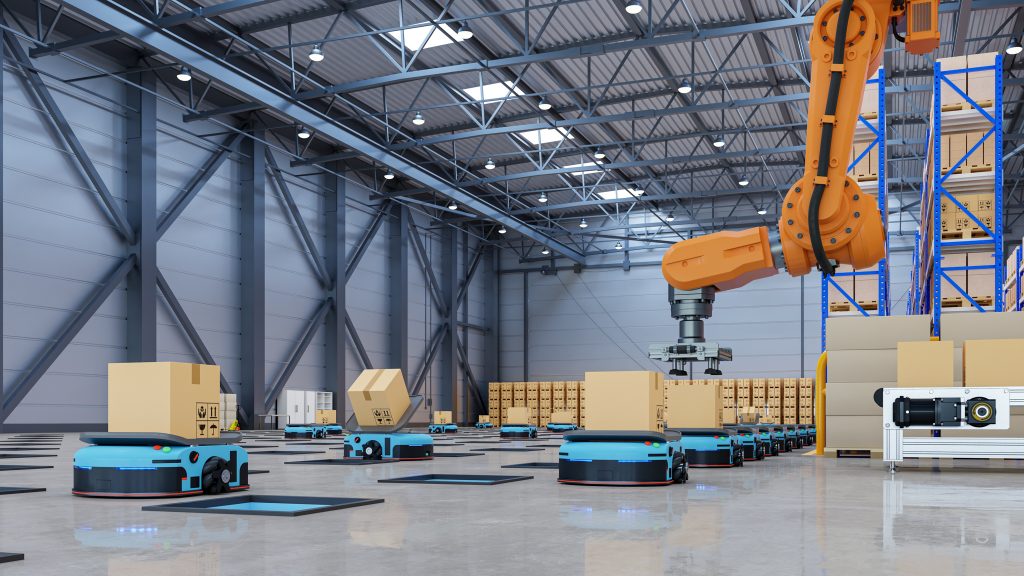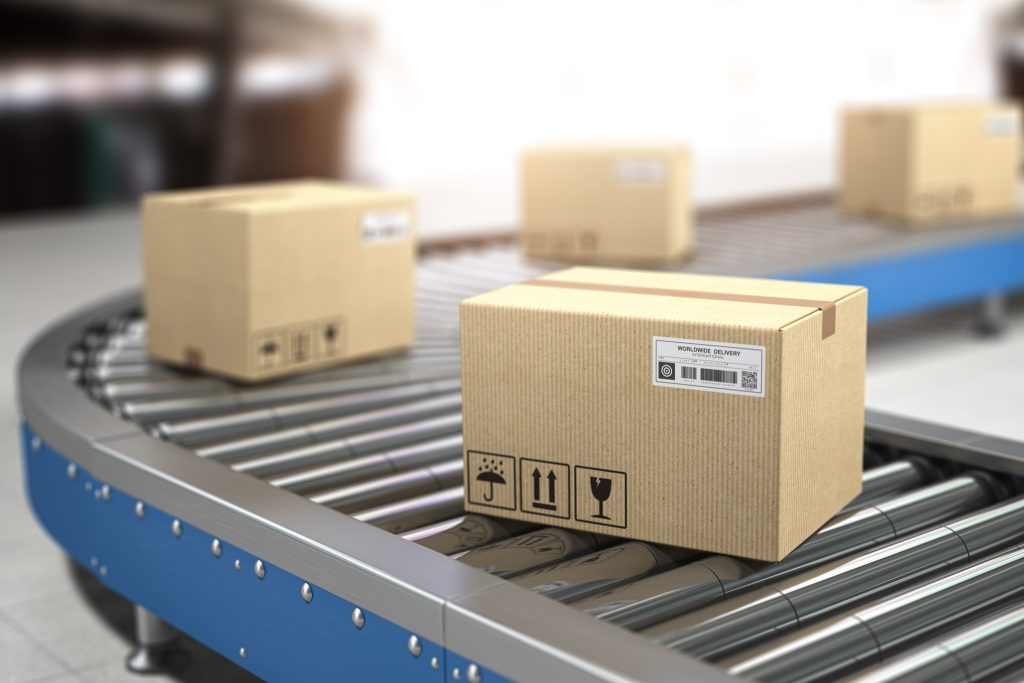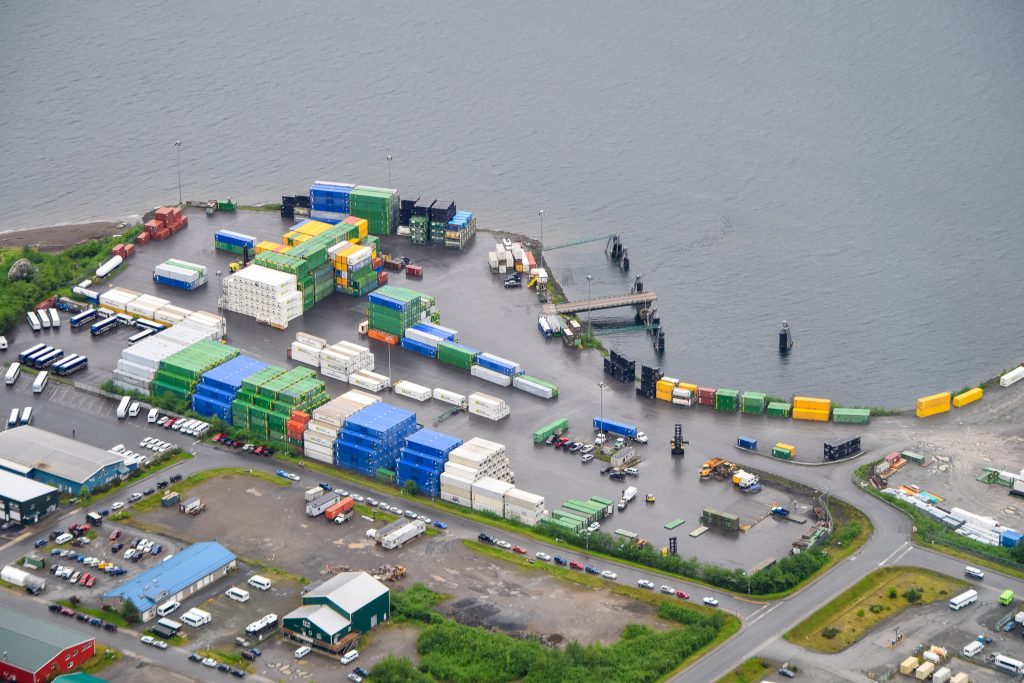We’re hearing more and more about blockchain these days. Yet most people know little about it. While we may have heard mentioned in tandem with bitcoin, many of us know little else about this mysterious tech-sounding thing. Well, if you’re involved in any aspect of e-commerce or your company uses shipping in any way, it’s time to start paying attention. Blockchain is quickly becoming the way of the future. For instance, the blockchain logistics and supply chain is predicted to become a $3.3 billion business by 2026. Here are 6 ways blockchain is revolutionizing the logistics and supply chain industry.
- Delivery times are being reduced.
- Delivery tracking is now 100% transparent.
- Errors along the shipping chain are being reduced.
- Nefarious activities such as theft and cyber-attacks are being eliminated.
- Administration costs are being hugely reduced
- Companies are becoming more profitable
Before digging into the ways blockchain is revolutionizing logistics, let’s discuss what this elusive term actually means. Think of blockchain as a digital ledger. It is a decentralized, encrypted database where everyone involved in the process has access to it and can record updates in their “block”, in real-time.
Next, consider this in the logistics context. The traditional logistics model is set up for the company initiating the shipping order to manage the entire shipping process; only this company has ownership and visibility into the whole delivery chain. Conversely, with blockchain, everyone involved in the end-to-end process is accountable and has visibility into it, once they add their block into the chain.
With this overview of the blockchain process, it becomes easier to understand how it is impacting logistics and supply chains for the better, around the world.
1. Delivery times are being reduced. One of the biggest inherent challenges in logistics is how to manage half-full trucks and inefficient routings due to small drops, traffic congestion in urban centres and spread-out rural deliveries. The beauty of blockchain technology is that it allows suppliers such as trucking companies and carriers with a secure place to share intel on current and future orders to help plan logistics accordingly. Provider availability can be matched to shipping demand when you know what’s currently on everyone’s plates. Best of all, it’s all being done in one shared place, so it can happen quickly.
2. Delivery tracking is now 100% transparent.
Blockchain makes it possible to track every step of the delivery process — from purchase to the final delivery — from one source. With traditional logistics, each shipping partner is the keeper of delivery status information on their own platform, making it cumbersome to track down exactly where a delivery is when multiple partners are involved. Now, not only can shippers follow the progress in one place, but so can end consumers. With today’s consumers demanding a 2-hour delivery or less, real-time tracking has become key. With blockchain’s ability to chronologically track and store every step of the process in real-time, tracking deliveries is easier than ever.
3. Errors along the shipping chain are being reduced.
An end-to-end supply chain can involve multiple locations and many third parties. That opens the door to potential errors along the way. Mislabeled, misdirected shipments and mis-inventoried items are just some of the things that can go wrong. Since every entry added to a block in a chain must be verified by every computer in the network, blockchain safeguards against human error and parties are now accountable for their block in the chain.
4. Nefarious activities such as cargo theft and cyber-attacks are being eliminated.
Every action in a blockchain is “sealed” with a complex code. The advantage of attaching these codes to each transaction makes them irreversible, out-smarting fraud. Furthermore, since digital ledgers can be viewed by every device in the network, blockchain is impervious to corrupted or lost data loss— if something goes off the rails on one device, it will remain intact on all of the others.
4. Administration costs are being hugely reduced.
With order volumes soaring, administration costs have increased accordingly. Often these are as high as 20% of total transportation costs. With a multitude of partners needing to provide documentation at every step in the supply chain, processing paperwork can become cumbersome and costly. Lost paperwork can also cause delivery slowdowns. Blockchain reduces paper supply by making everything digital and giving everyone in the network access.
6. Companies are becoming way more profitable.
By increasing operating efficiencies and lowering operating costs, blockchain is paving the way for the most important impact of all: higher profitability. Tighter control over process, product and prices are leading to another important “p”: profitability.
The World Economic Forum predicts that widespread blockchain adoption could increase global trade by as much as $1 trillion over the next ten years. No wonder industry giants like Alibaba and Amazon are already relying on blockchain to make their cross-border operations more efficient. It behoves the rest of the e-commerce and logistics industries to start following suit. Companies that take advantage of blockchain’s huge capabilities will be the ones best positioned for success.



 Who We Are
Who We Are
 Our Advantages
Our Advantages
 Case Study
Case Study





